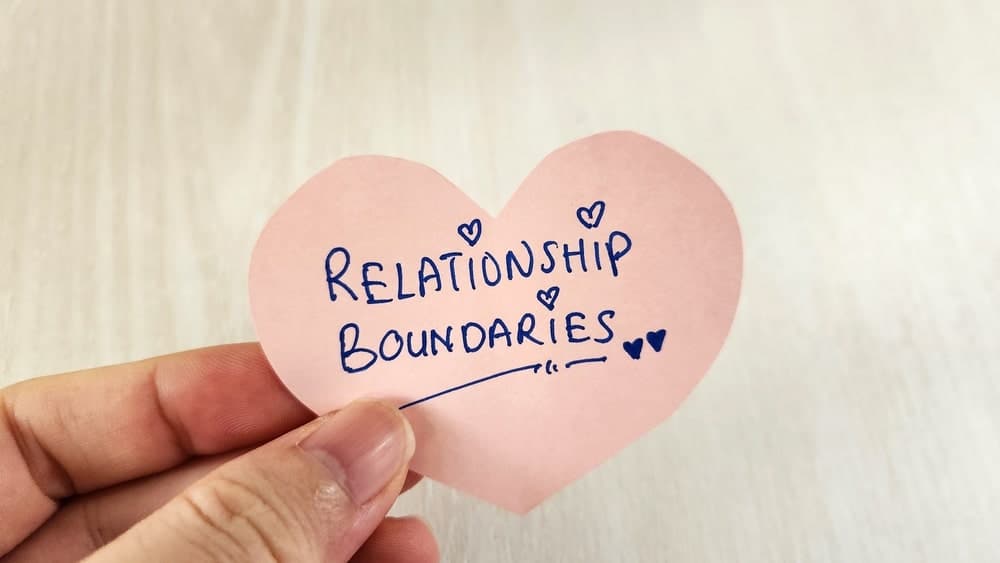– By Courtney Turner, LPCC
Relationships form the core of our social lives and deeply influence our mental and emotional well-being. Whether romantic, familial, or platonic, a healthy relationship is one that encourages personal growth, mutual respect, and emotional fulfillment.
While no relationship is perfect, understanding the traits that make relationships healthy can provide valuable insights into fostering meaningful and lasting connections.
Below are key traits that define a healthy relationship.
Nine Characteristics of a Healthy Relationship
Effective Communication

One of the most important traits of a healthy relationship is clear and open communication.
Healthy communication means both parties feel heard and understood, and it goes beyond just talking—it also involves active listening.
In a healthy relationship, individuals share their feelings, thoughts, and concerns without fear of judgment, knowing their partner will listen with empathy.
Effective communication helps prevent misunderstandings and conflict, allowing both people to express their needs and desires openly.
When disagreements occur, communicating calmly is essential, avoiding blame or defensiveness and instead focusing on finding solutions together.
Trust and Honesty
Trust is the cornerstone of any healthy relationship. Without it, insecurity, jealousy, and doubt can undermine the connection.
In a healthy relationship, both individuals trust each other’s intentions and actions. This trust is built over time through consistent honesty, transparency, and reliability.
Trust involves more than just fidelity in romantic relationships—it also includes trusting one another to be emotionally available, dependable, and supportive.
Dishonesty, betrayal, or lack of reliability can erode trust, which is why maintaining integrity and openness is vital for the long-term success of any relationship.
Respect for Boundaries

Boundaries are a vital element of any healthy relationship.
Everyone has emotional, physical, and psychological limits, and these boundaries need to be recognized and respected.
In a healthy relationship, individuals are aware of their own boundaries and are equally respectful of those of their partner.
This means listening when someone says they need space, respecting personal time and interests, and honoring the things that make each person feel comfortable and valued.
Healthy relationships also involve mutual consent in all areas, from physical touch to decisions about how time is spent together.
Establishing and respecting boundaries fosters an environment of safety and trust.
Empathy and Emotional Support
A healthy relationship is built on empathy, which is the ability to understand and share in another person’s feelings.
In such relationships, partners provide emotional support to one another, offering comfort during tough times and celebrating joys in good times.
Empathy in relationships helps individuals feel seen, heard, and valued. Rather than dismissing or minimizing each other’s emotions, a healthy relationship acknowledges and responds to them with compassion and understanding.
Emotional support also means being available when needed, offering encouragement, and showing care during times of stress, anxiety, or hardship.
Mutual Respect and Equality
Respect is at the heart of every healthy relationship.
Both individuals in a healthy relationship value each other equally and treat one another with kindness, fairness, and understanding.
In these relationships, power dynamics are balanced, with neither partner feeling superior or inferior.
Healthy relationships are rooted in mutual respect, where differences are embraced rather than dismissed.
Each person’s opinions, desires, and needs are considered important, and compromise is often necessary to maintain a sense of fairness.
Mutual respect helps maintain a positive dynamic, where both individuals feel valued and accepted.
Healthy Conflict Resolution

No relationship is free from conflict, but the way conflicts are handled can make all the difference.
Healthy relationships have productive ways of addressing disagreements. Instead of escalating arguments or resorting to hurtful comments, both individuals focus on finding common ground and resolving issues in a constructive manner.
Healthy conflict resolution includes taking responsibility for one’s actions, avoiding blame, and engaging in respectful dialogue.
It also involves being willing to compromise and understanding that disagreements don’t necessarily indicate a problem with the relationship itself—just an opportunity to better understand each other.
Support for Individual Growth
In healthy relationships, individuals are encouraged to pursue their personal interests, goals, and growth. Whether in a romantic relationship or a friendship, personal growth should not be stifled but rather supported.
A healthy relationship allows individuals to maintain their independence, pursue their passions, and achieve their personal dreams.
This support for personal growth strengthens the relationship, as each partner brings their best, most fulfilled self into the dynamic.
When both people are growing individually, they bring new perspectives and energy into the relationship, making it more vibrant and rewarding.
Quality Time Together and Apart
While spending quality time together is essential for bonding, a healthy relationship also respects the need for personal space.
Time apart allows individuals to recharge, pursue their own interests, and maintain their sense of self, which in turn helps strengthen the relationship.
When partners spend time together, it’s important that this time is intentional and meaningful—whether through shared activities, deep conversations, or simply enjoying each other’s company.
Balance is key, as too much time together can lead to co-dependence, while too much time apart may lead to feelings of disconnection.
Shared Values and Goals
Healthy relationships often involve shared values, whether it’s in how you view family, money, or future plans.
When two people have common goals and values, it strengthens their connection and makes navigating life’s challenges easier.
Shared values can include mutual beliefs about honesty, kindness, or spirituality, while shared goals might include things like career ambitions, travel plans, or family aspirations.
That said, it’s also important to recognize and respect differences in values and approach those differences with understanding and openness.
In Conclusion
A healthy relationship is one built on trust, respect, communication, and support. It is dynamic and requires consistent effort from both parties to ensure it remains strong and fulfilling.
While no relationship is perfect, these key traits offer a blueprint for creating and maintaining a bond that nurtures both individuals.
By prioritizing these qualities, we can cultivate relationships that are not only emotionally enriching but also resilient to life’s challenges.
A healthy relationship fosters personal growth, emotional stability, and mutual happiness, creating a safe and supportive environment where both individuals can thrive.
Links to Resources
https://health.clevelandclinic.org/signs-of-a-healthy-relationship
https://www.joinonelove.org/signs-unhealthy-relationship/
https://www.ny.gov/teen-dating-violence-awareness-and-prevention/what-does-healthy-relationship-look

